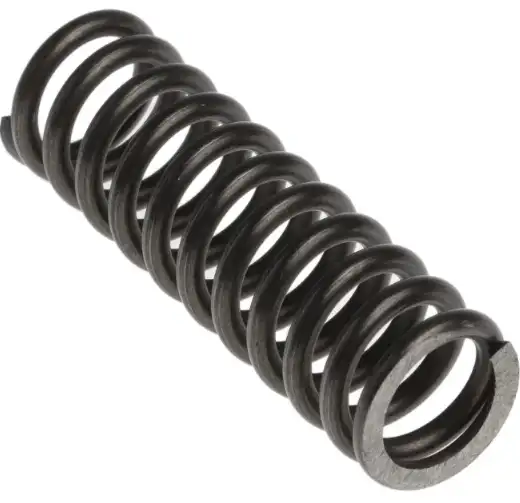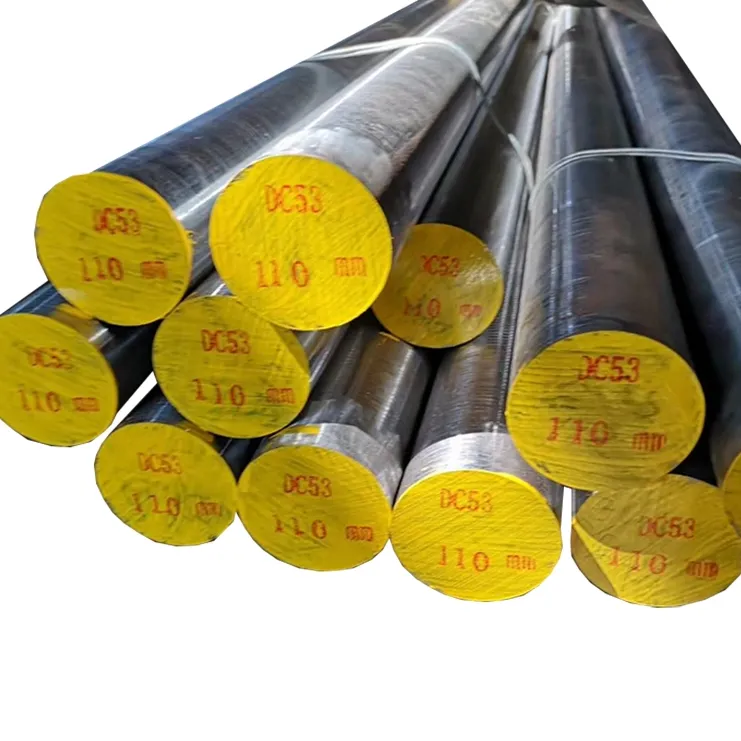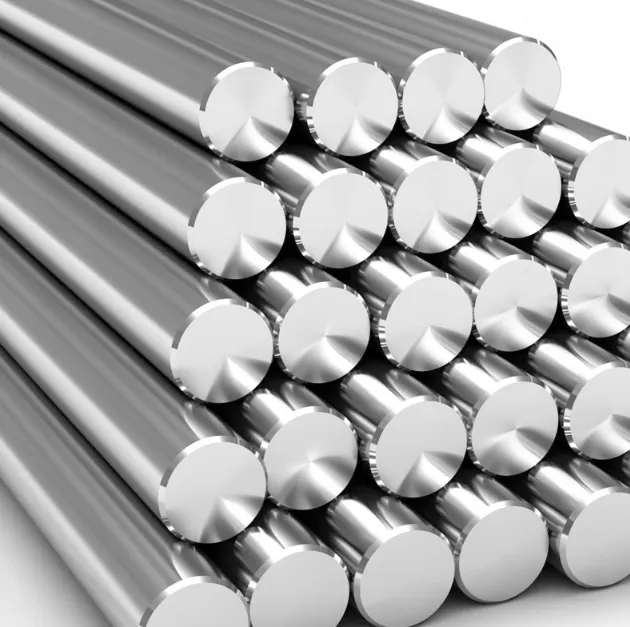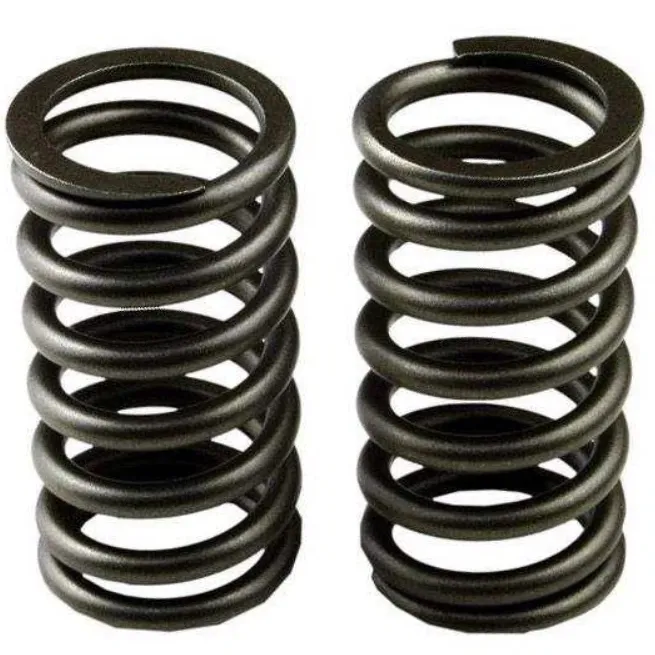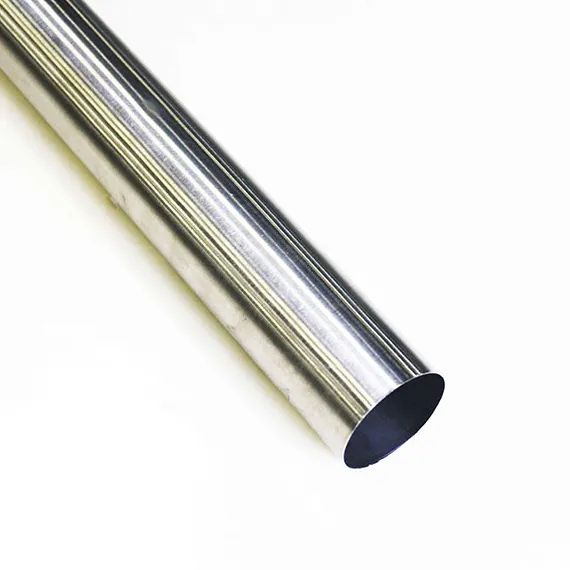Hastelloy C276 springs represent the pinnacle of corrosion-resistant spring technology, engineered specifically for the most demanding chemical processing environments. Our extensive research and manufacturing experience confirms that these nickel-molybdenum-chromium alloy springs outperform all conventional materials in oxidizing and reducing environments simultaneously. The exceptional resistance to pitting, crevice corrosion, and stress corrosion cracking makes C276 springs indispensable for pharmaceutical manufacturing, nuclear waste processing, and aggressive chemical handling systems where component failure could result in catastrophic consequences.
What is Hastelloy Alloy C276 Spring?
Hastelloy C276 springs are precision-engineered elastic components manufactured from a nickel-based superalloy containing significant amounts of molybdenum, chromium, and tungsten. This advanced material, designated as UNS N10276, demonstrates unparalleled resistance to both oxidizing and reducing chemical environments.
The alloy's sophisticated metallurgy creates a stable austenitic structure that maintains consistent mechanical properties across extreme temperature ranges. C276 springs resist attack from hydrochloric acid, sulfuric acid, phosphoric acid, and countless organic compounds that rapidly destroy other spring materials.
Unlike traditional spring steels or even premium stainless alloys, Hastelloy C276 springs maintain their structural integrity in mixed acid environments where conventional materials experience rapid degradation. The unique chemistry prevents the formation of harmful intermetallic phases that could compromise spring performance.
These components excel in applications requiring both mechanical reliability and chemical inertness. The combination of high strength, exceptional corrosion resistance, and thermal stability makes C276 springs the preferred choice for critical industrial processes.
What is the Chemical Composition of Hastelloy Alloy C276 Spring?
The precise chemical composition determines the exceptional performance characteristics of these advanced springs:
| Element | Weight Percentage | Primary Function | Performance Impact |
|---|---|---|---|
| Nickel (Ni) | Balance (57% min) | Matrix stabilization | Austenitic structure, ductility |
| Molybdenum (Mo) | 15.0 - 17.0% | Reducing environment resistance | Pitting/crevice corrosion resistance |
| Chromium (Cr) | 14.5 - 16.5% | Oxidizing environment resistance | Passive film formation |
| Tungsten (W) | 3.0 - 4.5% | Solid solution strengthening | High temperature strength |
| Iron (Fe) | 4.0 - 7.0% | Cost optimization | Mechanical properties |
| Cobalt (Co) | 2.5% max | Controlled addition | Thermal stability |
| Carbon (C) | 0.01% max | Minimized content | Prevents carbide precipitation |
| Silicon (Si) | 0.08% max | Deoxidizer | Processing aid |
| Manganese (Mn) | 1.0% max | Sulfur control | Cleanliness improvement |
| Phosphorus (P) | 0.04% max | Controlled impurity | Grain boundary integrity |
| Sulfur (S) | 0.03% max | Controlled impurity | Hot working characteristics |
| Vanadium (V) | 0.35% max | Grain refinement | Microstructure control |
The high molybdenum content provides exceptional resistance to reducing acids, while chromium ensures protection against oxidizing environments. This dual protection mechanism makes C276 springs unique in their ability to handle mixed chemical exposures.
What are the Mechanical Properties of Hastelloy Alloy C276 Spring?
Understanding mechanical characteristics is crucial for proper spring design and application:
| Property | Annealed Condition | Cold Worked | Test Temperature | Standard |
|---|---|---|---|---|
| Ultimate Tensile Strength | 690 - 760 MPa | 1000 - 1200 MPa | 20°C | ASTM A240 |
| Yield Strength (0.2% offset) | 310 - 380 MPa | 700 - 900 MPa | 20°C | ASTM A240 |
| Elongation | 40 - 60% | 20 - 30% | 20°C | ASTM A240 |
| Reduction of Area | 65 - 75% | 40 - 55% | 20°C | ASTM A240 |
| Hardness | 85 - 95 HRB | 25 - 35 HRC | 20°C | ASTM E18 |
| Modulus of Elasticity | 205 GPa | 205 GPa | 20°C | ASTM E111 |
| Poisson's Ratio | 0.31 | 0.31 | 20°C | Calculated |
| Density | 8.89 g/cm³ | 8.89 g/cm³ | 20°C | ASTM B311 |
| Thermal Expansion | 11.2 μm/m·K | 11.2 μm/m·K | 20-100°C | ASTM E228 |
| Thermal Conductivity | 10.1 W/m·K | 10.1 W/m·K | 100°C | ASTM E1461 |
Cold working significantly enhances strength properties while maintaining adequate ductility for spring applications. The material's ability to work-harden provides design flexibility for various loading conditions.
What is the Specification of Hastelloy Alloy C276 Spring?
International specifications ensure consistent quality and global interchangeability:
| Specification | Issuing Body | Scope | Key Requirements |
|---|---|---|---|
| ASTM B575 | ASTM International | Plate, Sheet, Strip | Chemical composition, mechanical properties |
| ASTM B574 | ASTM International | Rod, Bar, Wire | Dimensional tolerances, surface finish |
| ASME SB-575 | ASME | Pressure Vessel Code | Design allowable stresses |
| AMS 5750 | SAE Aerospace | Aerospace Applications | Enhanced testing requirements |
| UNS N10276 | ASTM/ASME | Unified Numbering System | Material identification |
| NACE MR0175 | NACE International | Sour Gas Service | H2S resistance requirements |
| ISO 15156 | ISO | Petroleum Industries | Material selection guidelines |
| VdTÜV 546 | German Technical | Nuclear Applications | Nuclear grade specifications |
These specifications guarantee material traceability and performance consistency across global manufacturing networks. MWalloys maintains comprehensive certifications to meet diverse customer requirements worldwide.
What Does Hastelloy Alloy C276 Springs Stand For?
The designation "Hastelloy C276" carries significant metallurgical heritage and technical meaning. "Hastelloy" represents a family of nickel-based superalloys originally developed by Haynes International, renowned for exceptional high-temperature and corrosion-resistant properties.
The "C" series indicates chromium-molybdenum compositions optimized for broad-spectrum corrosion resistance. Within this series, "C276" represents the most balanced composition, offering superior performance across both oxidizing and reducing environments.
This designation signifies proven reliability in the world's most challenging chemical processing applications. The alloy has earned acceptance in pharmaceutical manufacturing, where product purity cannot be compromised, and nuclear waste processing, where material failure could have severe consequences.
Engineers recognize C276 as the benchmark against which other high-performance alloys are measured. The standardized designation ensures consistent properties regardless of manufacturing source or global location.
What is the Equivalent of Hastelloy Alloy C276?
Global equivalent designations facilitate international procurement and specification compliance:
| Country/Standard | Designation | Notes |
|---|---|---|
| Germany (DIN) | 2.4819, NiMo16Cr15W | European Werkstoff number |
| United Kingdom (BS) | NA 21 | British aerospace designation |
| France (AFNOR) | NC22DNb | French national standard |
| Japan (JIS) | NW6276 | Japanese industrial standard |
| China (GB) | NS334 | Chinese national equivalent |
| Russia (GOST) | ХН65МВ | Cyrillic designation system |
| International (ISO) | NiMo16Cr16W3 | ISO chemical designation |
These equivalents maintain comparable chemical compositions and mechanical properties, enabling global sourcing flexibility while ensuring performance consistency.
What is the Difference Between Hastelloy Alloy C276 Springs and Monel Alloy 400 Spring ?
Comparing these premium alloys reveals distinct advantages for specific applications:
| Characteristic | Hastelloy C276 | Monel Alloy 400 | Performance Leader |
|---|---|---|---|
| Base Alloy System | Ni-Mo-Cr-W | Ni-Cu | Different mechanisms |
| Maximum Service Temperature | 650°C continuous | 480°C continuous | Hastelloy C276 |
| Hydrochloric Acid Resistance | Excellent | Poor | Hastelloy C276 |
| Seawater Resistance | Excellent | Excellent | Equal performance |
| Sulfuric Acid Resistance | Excellent | Fair | Hastelloy C276 |
| Oxidizing/Reducing Mixed Acids | Excellent | Poor | Hastelloy C276 |
| Material Cost Factor | Higher | Lower | Monel 400 |
| Machinability Rating | Moderate | Good | Monel 400 |
| Weldability | Good | Excellent | Monel 400 |
| Work Hardening Rate | High | Moderate | Application dependent |
| Nuclear Applications | Approved | Limited | Hastelloy C276 |
Hastelloy C276 springs excel in aggressive chemical environments, while Monel 400 remains cost-effective for marine applications with moderate chemical exposure.
What is a Hastelloy Alloy C276 Spring Used For?
Critical applications demand the unique properties of C276 springs:
Chemical Processing Industry: Reactor vessel internals, valve springs in corrosive service, and pump components handling mixed acids where material compatibility is paramount.
Pharmaceutical Manufacturing: Equipment springs in API synthesis, fermentation systems, and clean room applications where product contamination must be prevented.
Nuclear Industry: Control rod mechanisms, reactor coolant system components, and radioactive waste handling equipment requiring long-term reliability.
Petrochemical Refining: Sour gas processing equipment, hydrocracking unit components, and FCC unit springs exposed to high-temperature corrosive environments.
Pollution Control: Flue gas desulfurization systems, scrubber internals, and emission control equipment handling aggressive chemical solutions.
Advanced Manufacturing: Semiconductor processing equipment, solar panel manufacturing systems, and precision chemical synthesis apparatus.
Marine Applications: Deepwater drilling equipment, subsea processing systems, and offshore platform components in extreme environments.
What is the Classification of Hastelloy Alloy C276 Springs?
Technical classification systems organize this advanced material:
| Classification Method | Primary Category | Subcategory | Specific Designation |
|---|---|---|---|
| UNS System | N-series | Nickel-based | N10276 |
| ASTM Classification | Nickel Alloys | Corrosion Resistant | Solution Annealed |
| Crystal Structure | Face-Centered Cubic | Austenitic | Single Phase |
| Corrosion Classification | Universal Resistance | Multi-environment | Premium Grade |
| Temperature Classification | High Performance | Up to 650°C | Elevated Service |
| Application Classification | Critical Service | Chemical Processing | Specialty Springs |
| Manufacturing Classification | Wrought Products | Cold Formed | Precision Components |
| Quality Classification | Aerospace Grade | Nuclear Qualified | Premium Quality |
This classification framework assists engineers in material selection and ensures appropriate application matching.
Hastelloy Alloy C276 Spring Global Market Prices 2025
Current market dynamics reflect raw material costs and manufacturing complexity:
| Geographic Region | Price Range (USD/kg) | Market Dynamics | Supply Chain Status |
|---|---|---|---|
| North America | $85.00 - $95.00 | Chemical industry demand | Stable availability |
| Europe | $88.00 - $98.00 | Pharmaceutical growth | Good supply network |
| Asia-Pacific | $82.00 - $92.00 | Manufacturing expansion | Strong local production |
| Middle East | $90.00 - $100.00 | Petrochemical investment | Import dependent |
| South America | $87.00 - $97.00 | Mining industry demand | Variable supply |
| Africa | $92.00 - $102.00 | Infrastructure development | Limited local supply |
Price variations reflect regional demand patterns, transportation costs, and local processing capabilities. MWalloys leverages Chinese manufacturing advantages to offer competitive factory-direct pricing.
Hastelloy Alloy C276 Springs Advantages
Key benefits distinguish C276 springs from alternative materials:
Universal Corrosion Resistance: Outstanding performance in both oxidizing and reducing environments, eliminating material selection uncertainties.
Extended Service Life: Proven durability in aggressive chemicals reduces replacement frequency and maintenance costs significantly.
High Temperature Capability: Maintains mechanical properties and corrosion resistance up to 650°C in continuous service.
Stress Corrosion Cracking Immunity: Resists environmentally induced cracking that destroys conventional spring materials.
Fabrication Versatility: Responds well to cold working, welding, and machining using appropriate techniques and equipment.
Regulatory Compliance: Meets stringent requirements for pharmaceutical, nuclear, and food processing applications.
Design Flexibility: High strength-to-weight ratio enables compact spring designs in space-constrained applications.
Chemical Purity: Low carbon content prevents contamination in sensitive manufacturing processes.
Manufacturing Process
Advanced manufacturing techniques ensure consistent quality and performance:
Raw Material Selection: Premium-grade nickel, molybdenum, and chromium undergo rigorous chemical analysis before melting operations commence.
Vacuum Induction Melting: Controlled atmosphere processing prevents contamination and ensures homogeneous chemical distribution throughout the ingot.
Hot Forging: Initial breakdown at 1100-1200°C establishes proper grain structure and eliminates casting defects.
Solution Annealing: Heat treatment at 1120°C followed by rapid cooling dissolves harmful precipitates and optimizes corrosion resistance.
Cold Drawing: Progressive wire reduction through precision dies achieves target dimensions while introducing beneficial work hardening.
Spring Coiling: Computer-controlled forming equipment maintains dimensional accuracy and residual stress uniformity.
Stress Relief: Controlled heating removes forming stresses without compromising corrosion resistance or strength properties.
Final Inspection: Comprehensive testing includes dimensional verification, mechanical property confirmation, and corrosion resistance validation.
MWalloys employs state-of-the-art manufacturing facilities in China, combining advanced technology with cost-effective production methods.
Japanese Procurement Case Study
A leading Japanese pharmaceutical manufacturer required springs for a new API synthesis reactor handling mixed acid environments at elevated temperatures.
Technical Challenge: Design springs capable of 5-year service life in 40% hydrochloric acid with periodic nitric acid exposure at 180°C operating temperature.
Material Selection Process: Initial specifications called for 316L stainless steel, but laboratory testing revealed rapid corrosion failure within 30 days.
MWalloys Solution: Recommended Hastelloy C276 springs with modified geometry to accommodate thermal expansion and acid attack considerations.
Implementation: Supplied 850 springs in four different configurations, each accompanied by complete mill test certificates and corrosion test data.
Performance Results: After 24 months of continuous operation, ultrasonic inspection revealed no measurable material loss or mechanical degradation.
Economic Analysis: Higher initial material cost offset by extended service life and elimination of unscheduled maintenance shutdowns, resulting in 65% total cost reduction.
Client Feedback: The customer expanded C276 spring usage to three additional reactor systems based on proven performance and reliability.
This case demonstrates the economic advantages of selecting appropriate materials for demanding chemical processing applications.
Frequently Asked Questions
Q1: Can Hastelloy C276 springs be used in hydrogen fluoride service?
Yes, Hastelloy C276 demonstrates excellent resistance to hydrogen fluoride across a wide temperature range. Our testing confirms stable performance in both anhydrous HF and aqueous hydrofluoric acid solutions. The low carbon content prevents harmful carbide precipitation that could compromise corrosion resistance. However, specific application conditions should be evaluated, and we recommend conducting corrosion testing for critical applications.
Q2: How does thermal cycling affect C276 spring performance?
Hastelloy C276 springs exhibit excellent thermal stability and resist thermal fatigue cracking. The austenitic structure remains stable through repeated heating and cooling cycles without phase transformations. Thermal expansion characteristics are predictable and consistent. For applications involving extreme thermal cycling, we recommend stress analysis to account for thermal expansion effects on spring geometry and loading.
Q3: What welding procedures are recommended for C276 spring repair or modification?
Gas tungsten arc welding (GTAW) provides optimal results using ERNiMo-3 or ERNiCrMo-4 filler metals. Maintain interpass temperatures below 150°C and avoid post-weld heat treatment to preserve corrosion resistance. Argon shielding gas with 99.99% purity prevents contamination. Pre-weld cleaning with stainless steel brushes removes surface oxides. Post-weld inspection should verify corrosion resistance through appropriate testing methods.
Q4: Are there size limitations for manufacturing C276 springs?
Manufacturing capabilities depend on wire diameter and coil dimensions. Standard wire sizes range from 0.5mm to 25mm diameter, with custom sizes available upon request. Coil diameters from 5mm to 500mm are routinely produced. Length limitations depend on handling equipment and customer requirements. MWalloys can manufacture springs weighing from grams to several hundred kilograms using specialized production equipment.
Q5: How does C276 compare to other Hastelloy grades for spring applications?
Hastelloy C276 offers the best balance of corrosion resistance and mechanical properties for spring applications. C22 provides slightly better localized corrosion resistance but at higher cost. C4 offers good performance in specific environments but lacks the universal resistance of C276. B3 excels in reducing environments but performs poorly in oxidizing conditions. C276 remains the preferred choice for general chemical processing applications requiring broad-spectrum resistance.
Conclusion
Hastelloy C276 springs represent the ultimate solution for demanding chemical processing environments where conventional materials fail catastrophically. The exceptional combination of corrosion resistance, mechanical strength, and thermal stability makes these components indispensable for critical industrial processes.
Our manufacturing experience confirms that proper material selection eliminates costly failures and unscheduled maintenance shutdowns. While initial investment exceeds conventional materials, the superior performance and extended service life provide compelling economic advantages through reduced total ownership costs.
MWalloys combines advanced metallurgical expertise with competitive Chinese manufacturing capabilities to deliver world-class C276 springs at factory-direct prices. Our commitment to quality, technical support, and customer satisfaction ensures optimal performance in the most challenging applications.
Contact MWalloys today to discuss your Hastelloy C276 spring requirements and benefit from our extensive experience in high-performance alloy manufacturing and application engineering.
Authoritative References
- ASTM B575 Standard Specification for Low-Carbon Nickel-Molybdenum-Chromium Alloys
- ASME SB-575 Specification for Nickel-Molybdenum-Chromium Alloy Plate, Sheet, and Strip
- Wikipedia - Hastelloy Superalloys Comprehensive Overview
- NACE MR0175/ISO 15156 Materials for Use in H2S-Containing Environments
- ISO 15156 Petroleum Industries - Materials for Use in H2S-Containing Environments

